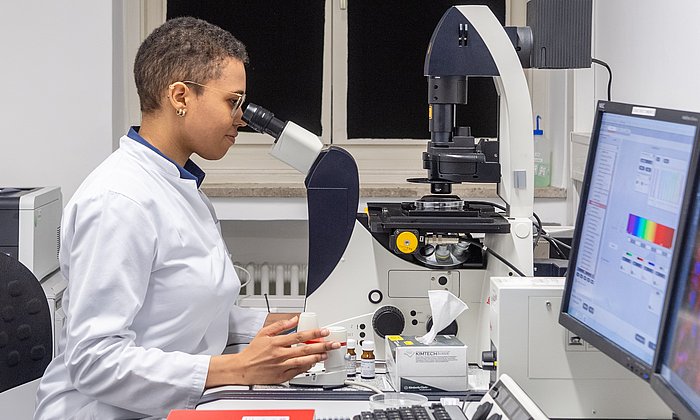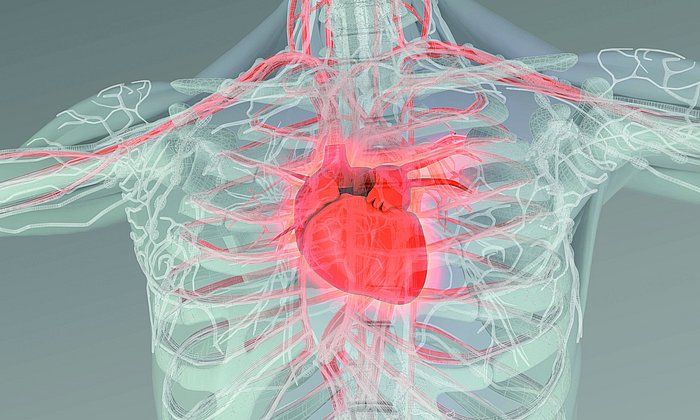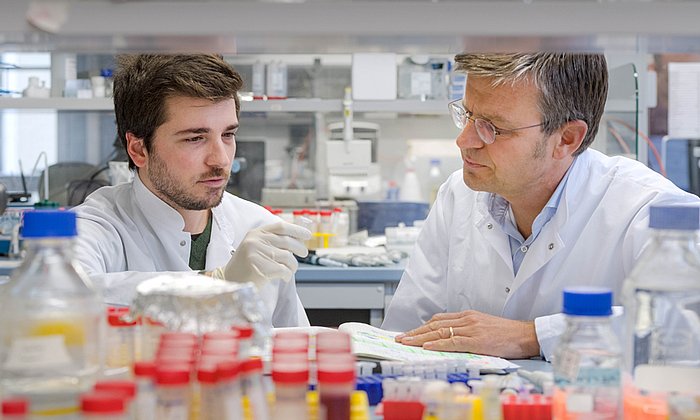German Ministry of Science funds development of Covid-19 drug
A spray to protect against lung damage from Covid-19
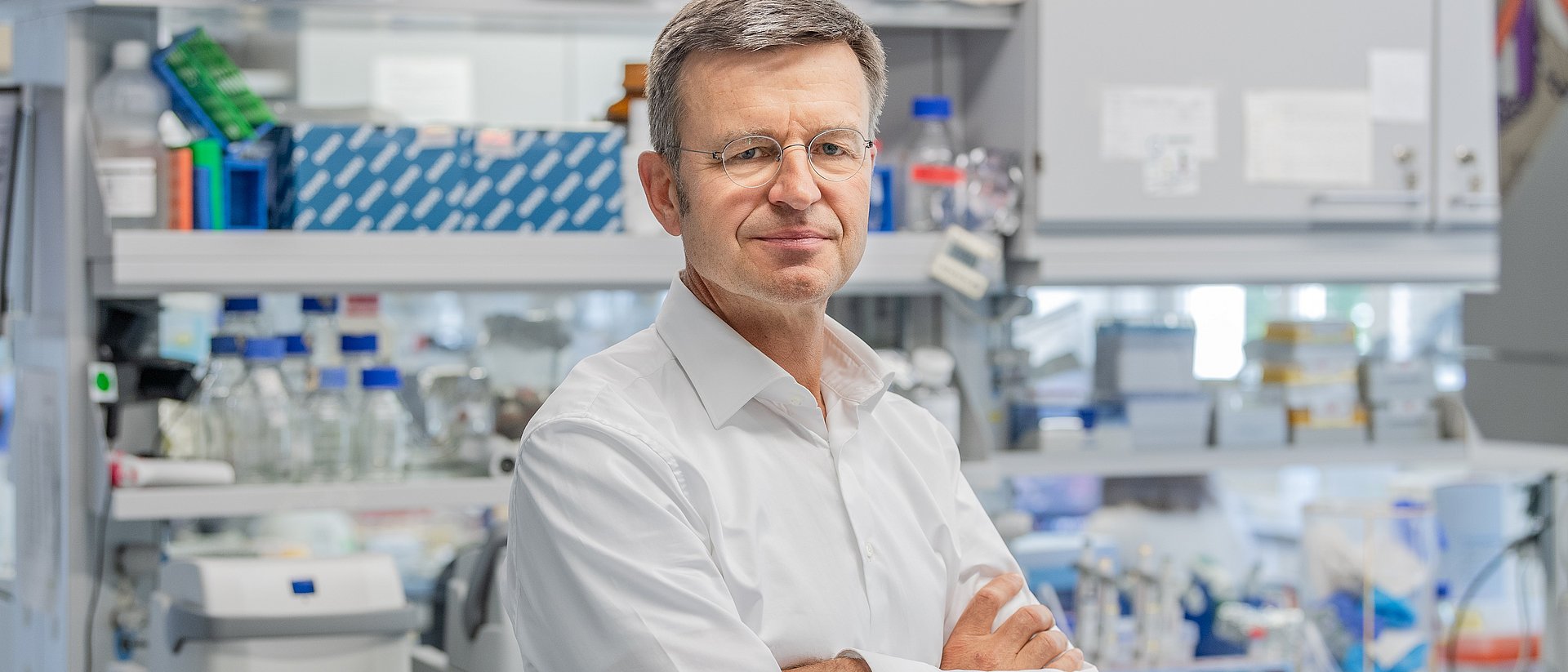
Covid-19 infections can lead to serious inflammations of the lung and the formation of scar tissue (fibrosis). This can have a long-term impact on lung function and is one of the causes of “long covid”. A team working with Stefan Engelhardt, Professor of Pharmacology and Toxicology at TUM has developed a new RNA-based drug that can prevent these inflammatory lung conditions. When administered via the respiratory passages, it quickly targets immune cells in the alveoli (tiny air sacs in the lungs) and inhibits a microRNA molecule found in these cells.
In Covid patients, misguided immune cells called macrophages play a substantial role in severe inflammatory infections and lung damage. However, when the new drug blocked the microRNA molecule in macrophages in mice, there was a significant reduction in inflammation and lung damage and a considerable improvement in lung function. Stefan Engelhardt is confident that serious infections and thus the kind of lung damage associated with long covid can be prevented in human patients receiving the drug through an inhaler.
RNA drug would be the first in its class
Starting with RCS-21, a sugar-coupled oligonucleotide inhibitor, Engelhardt and his partners are developing a drug to treat Covid-19 infections. The RNA drug would be the first in its class for targeted delivery to macrophages. “Because it influences immune cells, and not the virus itself, RCS-21 should also be effective in fighting omicron infections or even more aggressive variants arising in the future,” says Deepak Ramanujam, co-inventor and a group leader at TUM’s Institute of Pharmacology and Toxicology. A global patent process is underway. The Federal Ministry of Education and Research (BMBF) will provide 7 million euros in funding under the “Directive to support research and development for urgently needed treatments for SARS-CoV-2” (Press Release in German).
The Federal Institute for Drugs and Medical Devices (BfArM) issued a positive assessment of RCS-21 in an advice meeting. This is an important prerequisite for the further development of a drug. “We expect to complete the pre-clinical toxicological assessment in the third quarter of 2022. We then plan to enter phase one of the clinical assessment in about a year,” says Stefan Engelhardt. In the first of three clinical trial phases before final approval, a drug is initially administered to a small group of individuals.
Decisive support through TUM Venture Lab Healthcare
With the support of the TUM Venture Labs Healthcare, the rnatics startup was launched in record time and was able to meet the prerequisites to develop a new treatment. The co-founders are the experienced biotechnology entrepreneur and investor Dr. Thomas Frischmuth and Prof. Klaus Rabe, the director of LungenClinic Hamburg/Grosshansdorf and an expert in developing treatments for lung diseases. The Bavarian research company ISAR Bioscience GmbH will also participate in the development of RCS-21.
The TUM Venture Labs are a unique Europe-wide initiative for research-based start-ups. Their objectives are to greatly accelerate the conversion of leading-edge research into market-ready applications, make Munich the leading European hub for deep tech innovations and thus to boost Europe’s technological sovereignty. TUM Venture Labs offer tailor-made support concepts, incubator spaces, labs and technical infrastructure, training and venturing programs. Teams also gain access to a global network of companies and investors.
- Because the drug is still in the pre-clinical phase, it is not possible to participate in clinical studies at present.
- Preliminary work on the drug is being funded by the Bavarian Research Foundation.
- TUM and the affiliated UnternehmerTUM, Europe’s largest center for innovation and start-ups, has already achieved unparalleled success in helping young entrepreneurs establish businesses. The institute generates 70 to 80 technology-based start-ups every year. With the TUM Venture Labs, the partners are now ready to take their entrepreneurship activities to a new level and promote entire deep-tech families of high-potential start-ups in future technologies. Since being launched in October 2020, eight venture labs have gone into operation in the following fields: Healthcare, Software/AI, Robotics/AI, Quantum, Aerospace, Built Environment, Chemistry and Food/Agro/Biotech. Three more labs are planned: Additive Manufacturing, Smart Mobility and Sustainability/Bioeconomy/Energy. The Venture Labs are already helping around 100 teams of prospective entrepreneurs. They are benefiting from customized support concepts, incubator spaces, labs and technical infrastructure, training and venturing programs. The teams also gain access to a global network of companies and investors as they plan the launch of their startups.
- Another team, which also includes TUM scientists, is currently working on a drug to prevent infections with the SARS-Cov2 virus. The team has developed an active ingredient that blocks the spike protein of the virus. In cell culture tests they were able to completely neutralize the virus. Press Release
Technical University of Munich
Corporate Communications Center
- Paul Hellmich
- paul.hellmich@tum.de
- presse@tum.de
- Teamwebsite
Contacts to this article:
Prof. Dr. Dr. Stefan Engelhardt
Institute of Pharmacology and Toxicology
Technical University of Munich (TUM)
Tel: +49 89 4140-3260
stefan.engelhardt@tum.de
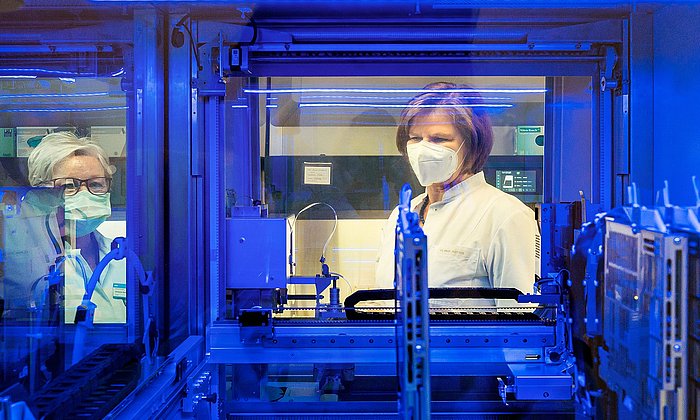
![On April 21, Ulrike Protzer, director of the Institute of Virology, and Andreas Pichlmair, Professor of Immunopathology of Viral Infections, will deliver the Covid-19 Lecture on Virus-Host Interaction. [Translate to en:]](/fileadmin/_processed_/f/9/csm_210421_CovLEc_dcae2f5b8d.jpg)
